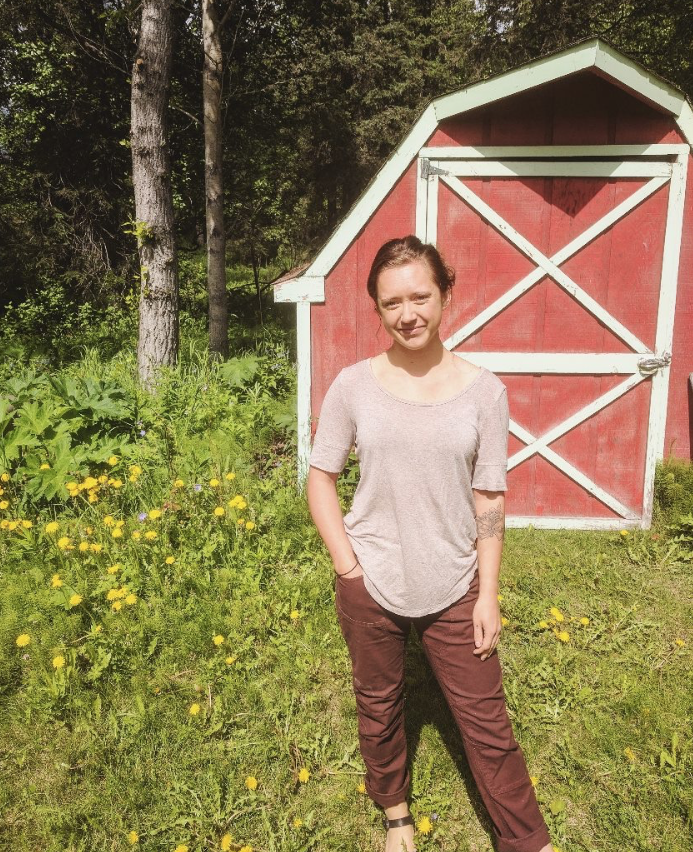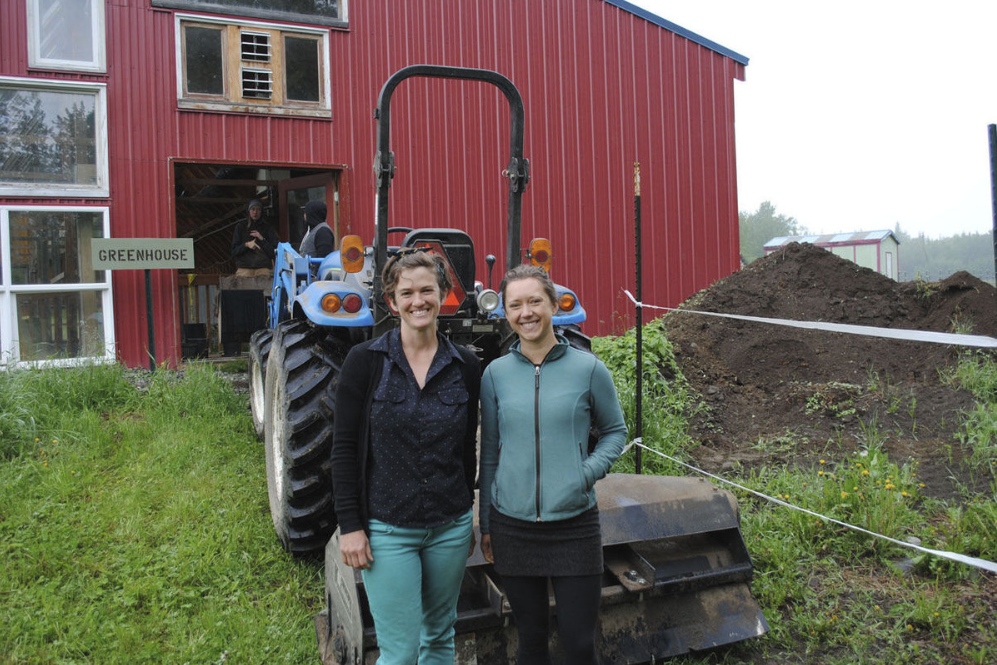Words by Cayley Eller
Spring Creek Farm is Alaska Pacific University’s hidden gem—it rests on the Kellogg Campus in Palmer, almost an hour outside of Anchorage. The Kellogg Campus is a nearly 800 acre property that was left behind by Louis Kellogg as an educational facility for the University. The distance from APU’s main campus has led to Spring Creek Farm and the Kellogg Campus being under-utilized by the larger student body, specifically undergraduate students.
Many students might not be aware of the possibilities to pursue summer internships and directed study courses through the farm. Students in a variety of fields related to sustainability, environmental sciences, outdoor studies, or liberal arts can speak with their advisors about interest in designing a directed study to work more closely with the farm. For some students, this might work best as a summer class or block course. Although, your involvement at Spring Creek has to be organized independently at the moment, this process will become more stream-lined and available as more students begin to pursue it.
As an educational facility, Spring Creek hopes to be a driving force for positive change in the local food system. Alaska currently imports more than 95% of our food supply through costly and energy-intensive transportation methods. By providing education in sustainable agriculture and socio-economic concerns relating to food security, the Kellogg campus can encourage a more sustainable and resilient vision of our local food system and its impact on the environment and social justice issues.
As a student at APU, I have been involved with Spring Creek Farm in a variety of ways over the last two years. Through my requirements within the Sustainability Studies degree program, I was able to create directed study plans to apply credits to the curriculum I was creating in collaboration with Megan and Joshua, who are the current managers at Spring Creek. I first got involved by assisting in the management of the Farmers Market at APU, and the following year through a directed study, which focused on crop planning and greenhouse management.
This summer, I was hired as an AmeriCorps VISTA Summer Associate, to promote poverty prevention through healthful food access and community involvement. As I am going into my senior year, the position has allowed me to live on the Kellogg Campus and participate in active learning through farm work such as planting, harvesting, and weeding, among other duties. My intern position, which is hosted through the AmeriCorps VISTA program, disperses a small monthly allowance and an education stipend at the end of the service term. Some of my projects throughout the summer have been to instruct community workshops in gardening and related topics, cleaning and preparing harvests for market, developing relationships in the local community, and guiding tours of the farm property.
Every day is different at the farm and you truly are exposed to how humbling and empowering farming can be. I think that education surrounding sustainable food systems is one of the most valuable pursuits of our generation—food production through sustainable agriculture is so important to protecting environments and feeding communities into the future. You learn pretty quickly that you have to work with the environment and plant when it’s raining or harvest in the heat. The fields have no regard for your personal agenda, but watching the crops turn from tiny seeds into a sizeable, wild-colored harvest is a great reward.
If you are interested in Spring Creek Farm, the best way to get involved is to communicate with your academic advisor and Megan Talley, the Farm Manager, to see how it would best fit into your degree plan.


